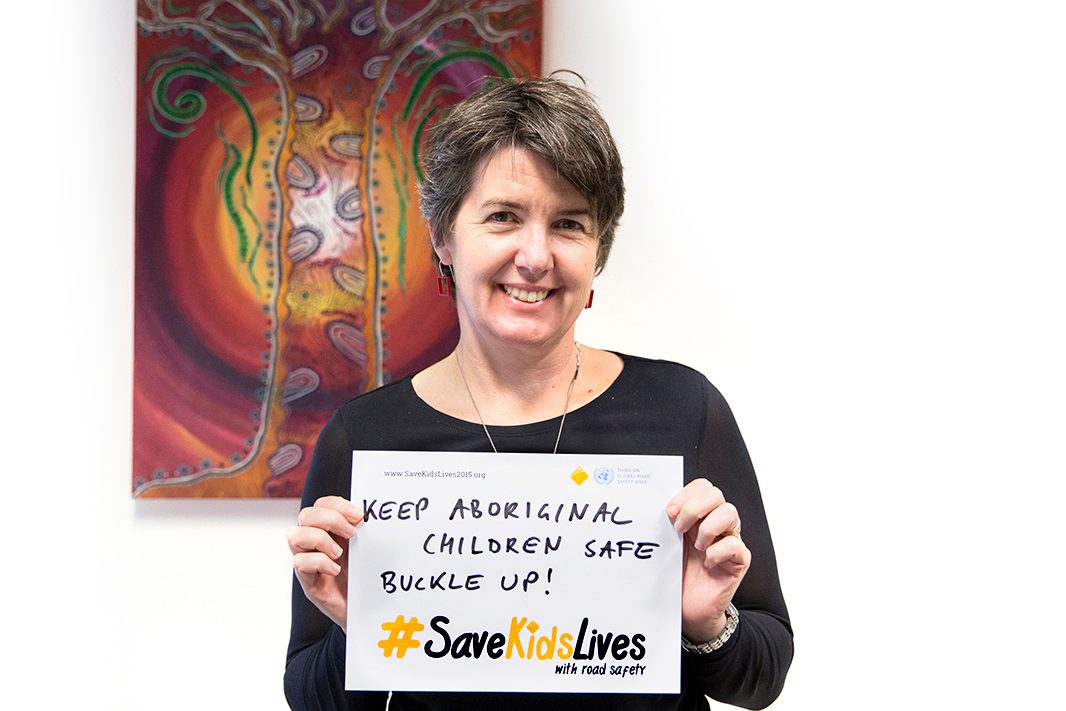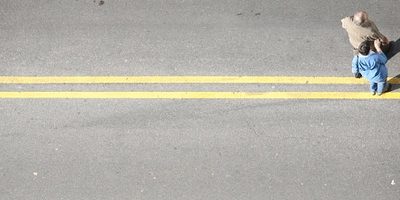
Save Kids Lives: the focus for road safety
Parents, governments and businesses are being urged to do more to #SaveKidsLives during UN Global Road Safety week, this week.
Director of Injury at the George Institute for Global Health Professor Rebecca Ivers said road injury in children was a major issue both in Australia and globally and greater collaboration was needed to improve the results.
“The statistics are startling: Road traffic injuries will be the fifth leading cause of childhood death worldwide by 2030, and the seventh leading cause of Disability Adjusted Life Years lost,” Prof Ivers said.
“Worldwide road traffic injuries account for 23% of all child deaths due to injury and in high-income countries, child passengers account for up to 50% of traffic deaths.
“Rates of road traffic death are three times higher in developing countries than in developed countries.
“The Third UN Global Road Safety Week theme - #SaveKidsLives - seeks to highlight the plight of children on the world’s roads and generate action to better ensure their safety.”
Prof Ivers said research by the Institute was focused on keeping kids safe in cars.
“George Institute research, in partnership with Neurosciences Research Australia, Transport for NSW and Kids and Traffic, evaluated the impact of a child restraint fitting, education and distribution program,” she said.
“The program increases the use of age-appropriate restraints and correct use of restraints, which translates to improved crash injury protection.
“It has now been piloted in Aboriginal community settings and is being delivered in a large scale trial to 12 Aboriginal communities around NSW, funded by NSW Health and Transport for NSW.
“Other related research work focuses on implementation and evaluation of Driving Change, a driver licensing support program for young Aboriginal people.
“We have shown how effective these programs can be, and how essential they are to keeping kids and young people safe.”
KidSafe NSW also delivers important safety programs to keep children safe in cars.
Christine Erskine, Executive Officer, Kidsafe NSW supported the call to encourage people to take a 'Safie' using the United Nations sign board #SaveKidsLives and pass it on to family and friends.
“There are simple steps we can all take, such as actively supervising children around roads and driveways, ensuring they are seated in a fitted and properly installed restraint for every car trip and wearing a helmet when riding any wheeled device,” Ms Erskine said.
NSW Kids and Families was established as a statutory health corporation to promote the health and wellbeing of mothers and babies, children, young people and families in NSW.
Ms Joanna Holt, Chief Executive of NSW Kids and Families, said keeping children and young people safe and well for the long term could only be done in partnership with others, including government and health providers, community agencies, and research and educational institutions.
“It’s through projects like this where different groups come together that we can really have an impact on raising awareness of the prevalence of road trauma and the importance of keeping our children safe,” Ms Holt said.
The #SaveKidsLives sign board can be found at http://www.savekidslives2015.org/
MEDIA CONTACT
Aaron Wakeley, Senior Media Advisor, Australia
The George Institute for Global Health
P: 0417 249 295
E: awakeley@georgeinstitute.org.au



